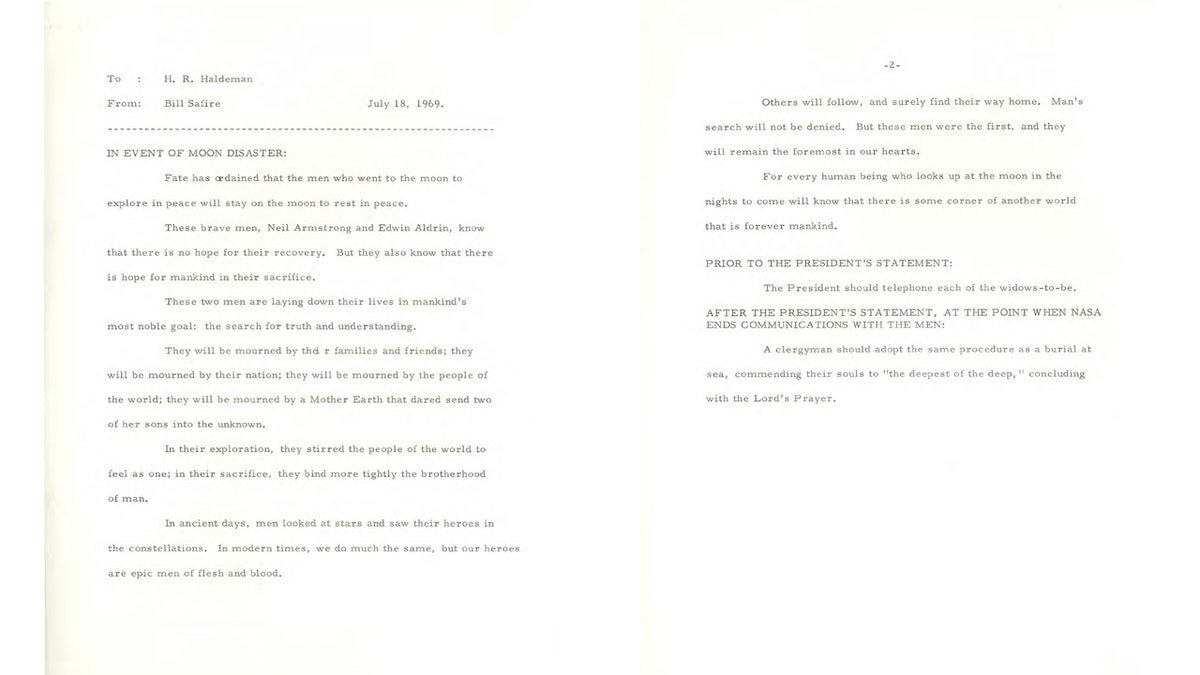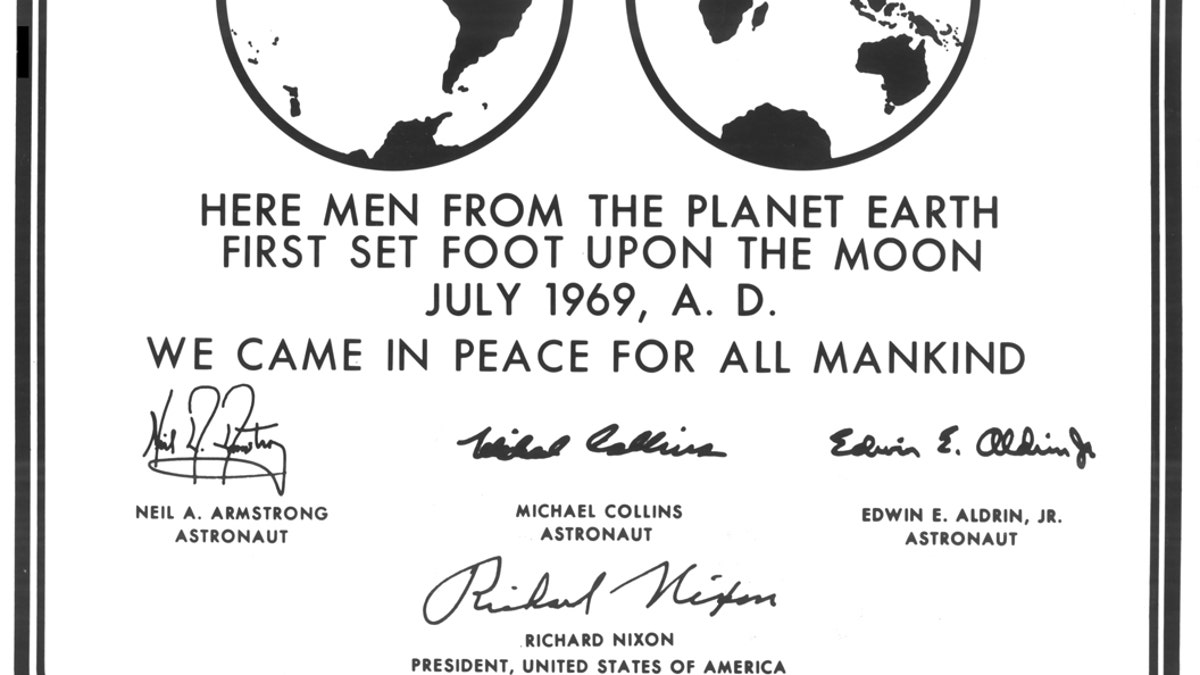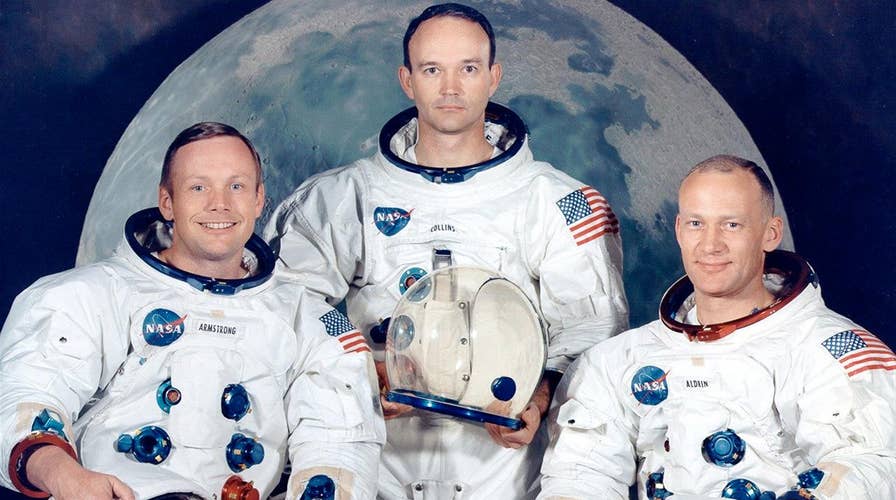Apollo 11 Moon landing: A brief timeline from 1961 to 1969
Apollo 11 landed on the Moon on July 20, 1969. Here is a brief timeline of events that lead to the historic moment, from President Kennedy's call to action in 1961 to 'The Eagle has landed' in 1969.
Apollo 11 was a rousing success and astronauts Neil Armstrong and Buzz Aldrin were able to walk on the Moon and ultimately, return to Earth.
But what would happen if they couldn't come back?
President Richard Nixon, who delivered a message to Armstrong, Aldrin and Michael Collins after the successful lunar landing, also asked his speechwriter, William Safire, to write a contingency speech should something go wrong. The speech was eventually delivered to Nixon’s Chief of Staff, H.R. Haldeman and is now housed at the Nixon Presidential Library and Museum.

(Credit: Nixon Presidential Library and Museum)
APOLLO 11 INSIDERS REMEMBER HISTORY'S MOST FAMOUS SPACE MISSION: 'WE HAD A JOB TO DO AND WE DID IT'
Entitled "IN EVENT OF MOON DISASTER," Nixon's speech would address Armstrong and Aldrin's widows, as well as the nation. "Fate has ordained that the men who went to the moon to explore in peace will stay on the moon to rest in peace," the speech starts.
The speech continues: "These brave men, Neil Armstrong and Edwin Aldrin, know that there is no hope for their recovery. But they also know that there is hope for mankind in their sacrifice."
Safire, in a 1999 interview with Meet the Press, said Aldrin and Armstrong would be "abandoned on the Moon" and "either have to starve to death or commit suicide."
"These two men are laying down their lives in mankind's most noble goal: the search for truth and understanding," Nixon would've continued in the speech.
Nixon would've gone on to say that "Others will follow, and surely find their way home," but the memory of Aldrin and Armstrong would be honored forever, as "these men were the first, and they will remain the foremost in our hearts."
As the Nixon Library added, "Fortunately, it [the speech ] was never needed" and the former president called the three astronauts and thanked them for their successful mission, saying "because of what you have done, the heavens have become a part of man's world."

Millions of people on Earth watched via television as a message for all mankind was delivered to the Mare Tranquilitatis (Sea of Tranquility) region of the Moon during the historic Apollo 11 mission, where it still remains today. This photograph is a reproduction of the commemorative plaque that was attached to the leg of the Lunar Module (LM), Eagle, engraved with the following words: “Here men from the planet Earth first set foot upon the Moon July, 1969 A.D. We came in peace for all of mankind.” (Credit: NASA)
Although the call was "unexpected," as Collins said last month in an interview with Fox News, it was nonetheless "well-delivered and well-received."
CLICK HERE TO GET THE FOX NEWS APP
Be sure to catch the America’s News HQ Apollo 11 50th anniversary special on Fox News on Saturday, July 20 at 12 PM EST.









































